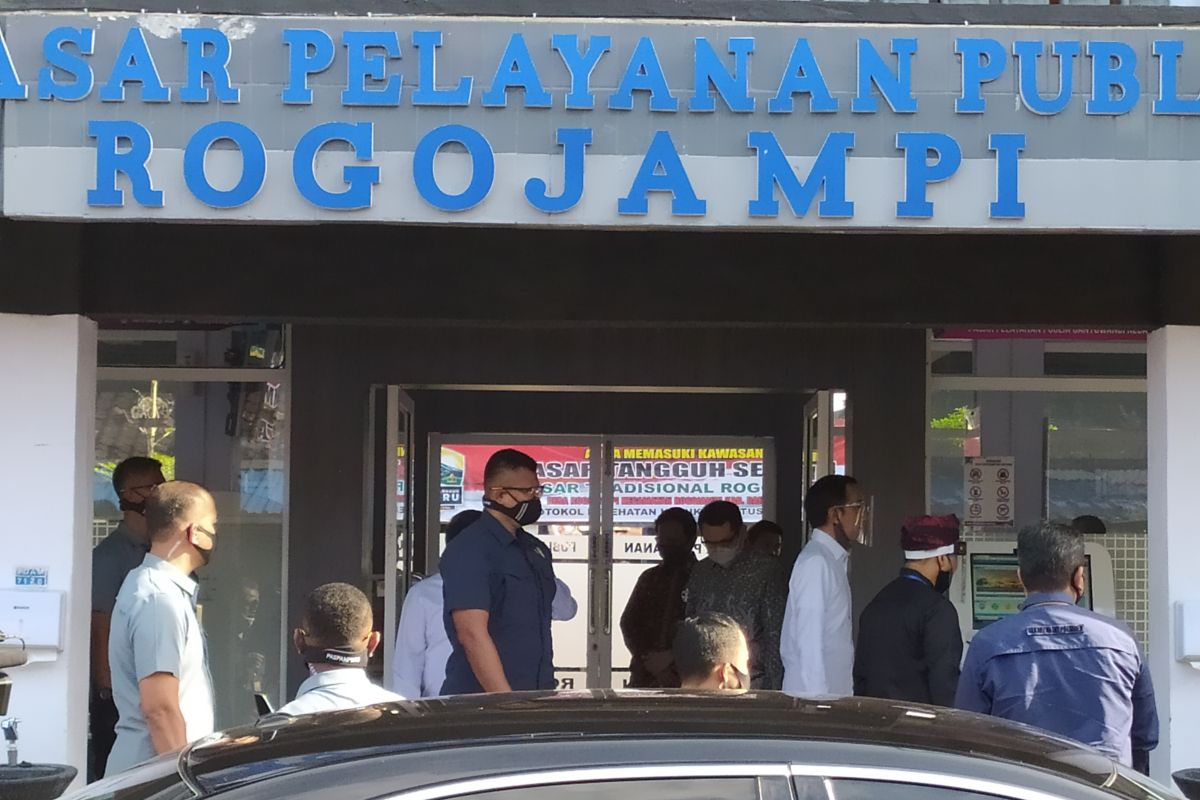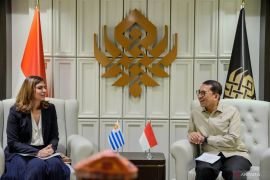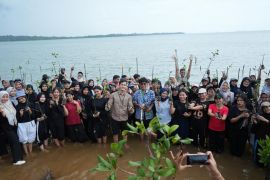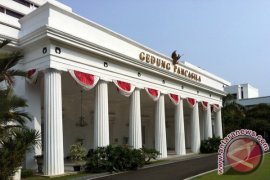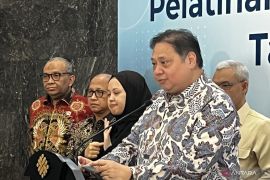I have repeatedly informed regional leaders to push 'the brake and accelerator pedals' in a balanced mode. This is now challengingBogor, W Java (ANTARA) - As its coronavirus case count crosses 50 thousand, Indonesia, which has been battling the COVID-19 pandemic since March 2, 2020, is facing twin crises: a public health emergency and an economic downturn.
As of June 26, 2020, Indonesia has recorded 51,427 confirmed cases of the novel coronavirus disease, or COVID-19. Of the total number of confirmed patients, 21,333 have been discharged from hospital, while 2,683 others have succumbed to the deadly virus.
Over the past few months, Jakarta has emerged as the epicenter of the COVID-19 outbreak in Indonesia, but now, the trend in Greater Surabaya areas, which include Surabaya City and the districts of Sidoarjo and Gresik, is becoming a cause for concern.
According to the East Java provincial government's COVID-19 Task Force, Surabaya, the capital of East Java Province, has recorded 4,962 confirmed cases with 1,838 recoveries and 369 deaths as of June 24, 2020.
Meanwhile, Sidoarjo District has recorded 1,287 positive cases, 207 recoveries, and 97 deaths, followed by Gresik District, with 534 confirmed cases, 77 recoveries, and 55 fatalities.
The spread of COVID-19 in those areas should firstly be brought under control, President Joko Widodo (Jokowi) advised. An integrated approach is needed to handle the COVID-19 pandemic and reduce the number of cases, he said.
During a visit to Surabaya on Thursday to review the handling of the COVID-19 pandemic in East Java, President Jokowi gave the province two weeks to adopt an integrated approach and bring COVID-19 infections under control.
For Indonesia, COVID-19, which initially emerged in the Chinese city of Wuhan in 2019 and then spread to over 215 countries and territories across the globe, is not merely a public health issue.
The pandemic, which is undeniably a huge crisis in human history, has also crippled the global economy, partly owing to travel restrictions, shut-down of business entities, disruption of supply chains, and border closures.
President Jokowi said he has been apprised of the global economic crisis being a real challenge, and added that several nations have felt its impact amid the ongoing global pandemic.
The International Monetary Fund (IMF) has forecast that this year, several countries would experience an economic contraction.
The US economy is projected to contract up to minus 8 percent, while the economies of Japan, the UK, France, Italy, Spain, and Germany are expected to decline to -5.8 percent, -10.2 percent, -12.5 percent, -12.8 percent, - 12.8 percent, and -7.5 percent, respectively.
"What does this mean? It means that supply, demand, and production will get disrupted. We must be aware of the fact that while we are handling public health issues, we are still reeling from the other problem, that is, the economy," President Jokowi remarked.
According to the IMF, “Indonesia's growth slowed in the first quarter of 2020 to 3 percent y/y (from 5 percent in Q4:2019), or -2.4 percent (q/q), mostly driven by reduced consumption and investment as containment measures were stepped up in late February".
Indonesia's rupiah has depreciated by 1.9 percent against the US dollar, while equity prices have dropped by 21 percent, up from a 40-percent decline in late March, according to IMF's policy tracker, published on its official website.
"The yield on rupiah-denominated 10-year government bonds has increased marginally by 8 bps to 7.1 percent, down from a 132-bps spike in late March," the IMF revealed.
This has prompted the call for maintaining a balance in pushing the brake and accelerator pedals in managing the public health and economic crises.
According to President Jokowi, the nation cannot push economic matters while ignoring health issues.
On the other hand, it cannot solely focus on health issues and allow the economy to get disrupted, he added.
"I have repeatedly informed regional leaders to push 'the brake and accelerator pedals' in a balanced mode. This is now challenging," he reiterated.
The President has urged the nation to have the mental fortitude to face this reality, as all countries, including Indonesia, are reeling from the public health and economic crises brought on by the COVID-19 pandemic.
The public health and economic crises caused by the pandemic have undoubtedly encumbered several nations.
"The disease has not solely affected Indonesia since it has spread to 215 countries," President Jokowi noted.
To ensure that the country wins the battle against the pandemic, the President has urged all Indonesians to understand the significance of practicing measures mandated by the healthcare and COVID-19 protocols, including wearing face masks and avoiding crowds.
Hence, people at large must not misinterpret the new normal era as a time for doing away with safety measures, such as wearing face masks while venturing outdoors and practicing physical distancing, which have been implemented to break the chain of COVID-19 transmission. (INE)
EDITED BY INE
Related news: State budget is vital for Indonesia's economic restoration: minister
Related news: Global economic crisis is real: Indonesian President Jokowi
Editor: Fardah Assegaf
Copyright © ANTARA 2020
